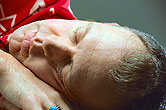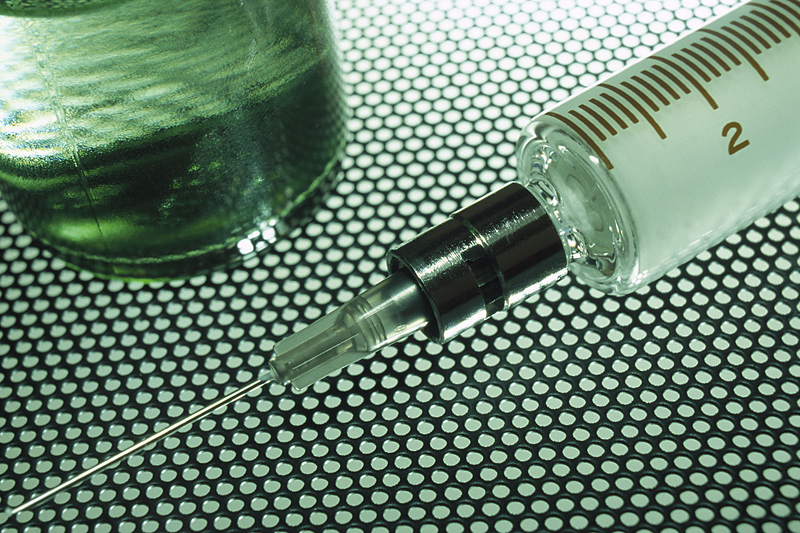
MONDAY, Oct. 15 (HealthDay News) — Poor sleep may not only leave you drowsy, it might also raise your odds for a precursor condition to diabetes, according to a small new study that looks at how fat cells respond to sleepless nights.
“It’s always been thought that the primary function of sleep was for the brain, but in addition to the brain, your fat cells also need sleep. Too little sleep makes you groggy, and the same thing happens on a metabolic level. Cells don’t behave as they normally would, and this can lead to insulin resistance,” said Matthew Brady, senior study author and an associate professor of medicine at the University of Chicago Medical Center.
Results of the study are published in the Oct. 16 issue of the Annals of Internal Medicine.
Other recent research has suggested that a lack of sleep can lead to a variety of problems, such as insulin resistance, obesity, type 2 diabetes, heart disease, stroke and high blood pressure, according to background information in the study. What hasn’t been clear, though, is why too little shuteye is linked to these conditions.
“This is the first time that sleep has been studied at the cellular level,” Brady explained.
For the current study, the researchers recruited seven healthy, normal-weight young adults whose average age was just under 24 years.
The study volunteers were randomly assigned to spend four nights simulating sufficient sleep by sleeping 8.5 hours and four nights simulating sleep deprivation by sleeping just 4.5 hours a night. The four-night stretches of sleep simulations were spaced four weeks apart. The study took place in a sleep lab.
After each four-day simulation, the researchers measured how well each person processed glucose (sugar), and they took samples of fat cells from each person’s abdomen.
The investigators found that in people who were sleep deprived, the fat cells’ ability to respond to insulin — a hormone that helps the body metabolize carbohydrates — was reduced by 30 percent. And, insulin levels were almost three times higher than in the well-rested study participants. High insulin levels tend to indicate that something isn’t working properly in the metabolic system, and insulin resistance is occurring. To try to compensate, the pancreas makes more insulin. If this cycle continues for too long, type 2 diabetes can develop.
“Sleep is incredibly important, not only for cognitive [brain] function, but also for your metabolic health as well,” Brady said.
The researchers are currently recruiting for a trial of overweight people with sleep apnea to see if treating the sleep apnea has an effect on the body’s metabolism.
Commenting on the study findings, Dr. Spyros Mezitis, an endocrinologist and clinical investigator at Lenox Hill Hospital in New York City, said: “So much of the population is sleep deprived, and sleep has been implicated in a lot of abnormal bodily functions. This study sets the stage for a better understanding about what we should be telling patients about sleep. Sleep may be another important lifestyle modification that people need to make.”
But, Mezitis added, because this was a small study done for a short period of time, its findings need to be validated in other studies.
Dr. Shelby Freedman Harris, director of the behavioral sleep medicine program at the Sleep-Wake Disorders Center at Montefiore Medical Center in New York City, said this was an interesting study that sheds light on how a lack of sleep can contribute to the metabolic syndrome. Metabolic syndrome is the name given to a cluster of risk factors that together increase the risk of heart disease, stroke and type 2 diabetes.
“If you’re not sleeping enough, you need to know that it’s impacting you on a cellular level,” she said. And, if you’re already overweight, a lack of sleep can put you at risk of further complications, such as sleep apnea, which in turn, leads to less sleep.
“A lack of sleep can really set up a vicious cycle. Sleep should be considered as important as diet when you’re trying to prevent weight gain and diabetes. Just because society isn’t sleeping as much as necessary doesn’t mean you shouldn’t try,” Harris added.
While the study found an association between reduced sleep and insulin resistance, it did not prove a cause-and-effect relationship.
More information
Learn more about getting a good night’s sleep from the U.S. National Institutes of Health.

